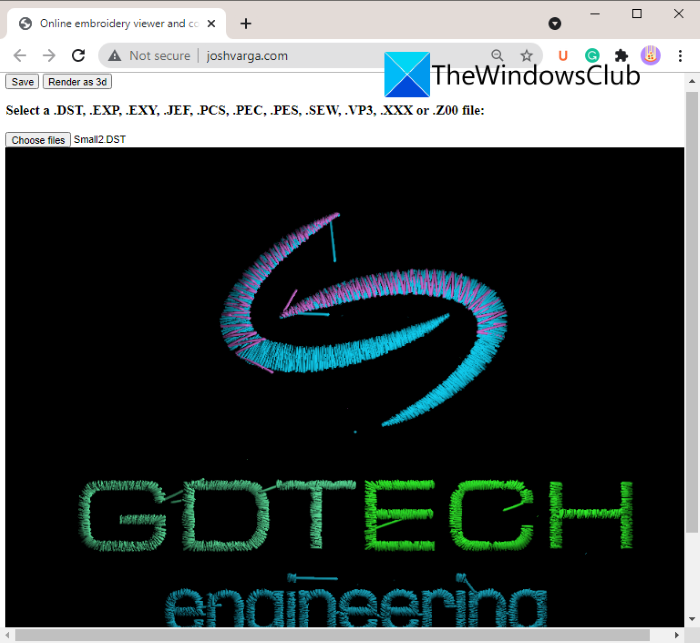

While a large majority of embroidery software is specific to machine embroidery, there is also software available for use with hand embroidery, such as cross-stitch.Ĭomparison of embroidery software Reset resets the state and allows a Transformer to be reused.Embroidery software is software that helps users create embroidery designs. Transform(dst, src byte, atEOF bool) (nDst, nSrc int, err error)
OPENSOURCE DST VIEWER FREE
Other than the error conditions listed // here, implementations are free to report other errors that arise. If both conditions apply, then // either error may be returned. ErrShortSrc means that src had insufficient data // to complete the transformation. // ErrShortDst means that dst was too short to receive all of the // transformed bytes. If err is nil then nSrc must equal len(src) // the converse is not necessarily true. A nil error can be returned regardless of // whether atEOF is true.

// A nil error means that all of the transformed bytes (whether freshly // transformed from src or left over from previous Transform calls) // were written to dst. // Callers should always process the nDst bytes produced and account // for the nSrc bytes consumed before considering the error err.

The // atEOF argument tells whether src represents the last bytes of the // input. Transform writes to dst the transformed bytes read from src, and // returns the number of dst bytes written and src bytes read. That determines how much of the input already conforms to the Transformer. SpanningTransformer extends the Transformer interface with a Span method Span(src byte, atEOF bool) (n int, err error) Calls to Span and Transform may be // interleaved. This is obviously more // limited than calling Transform, but can be more efficient in terms of // copying and allocating buffers. In // effect, it does the transformation just as calling Transform would, only // without copying to a destination buffer and only up to a point it can // determine the input and output bytes are the same. // Calling Span can modify the Transformer state as a side effect. ErrShortSrc means that src had insufficient data to determine whether the // remaining bytes would change. Note that n may be len(src), meaning that the output // would contain additional bytes after otherwise identical output. // ErrEndOfSpan means that the Transformer output may differ from the // input after n bytes. If err is nil, then n must // equal len(src) the converse is not necessarily true. A nil error can be returned // regardless of whether atEOF is true. // A nil error means that all input bytes are known to be identical to the // output produced by the Transformer. // Callers should always account for the n bytes consumed before // considering the error err. The atEOF argument tells whether src represents the // last bytes of the input. It does not necessarily return // the largest such n. Transformer // Span returns a position in src such that transforming src results in // identical output src for these bytes.


 0 kommentar(er)
0 kommentar(er)
